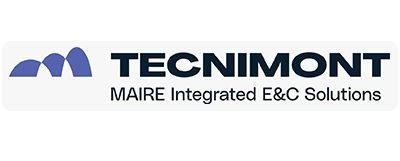Our Vision
Circular Economy perspective
Our project embraces the principles of a circular economy to tackle waste management challenges effectively. By viewing waste not just as a pollutant but as a resource, we aim to transform materials back into valuable assets through recycling and composting. This cyclical approach mirrors natural processes and ensures the sustainable use of Earth’s finite resources.
Decentralized solid waste management plays a crucial role in this vision. By managing waste at its source—close to where it is generated—we can reduce waste, enhance recycling, and minimize environmental impact. This method not only lowers greenhouse gas emissions from traditional waste treatment but also fosters community involvement and creates local employment opportunities.
The project’s core motivation is to combat the environmental threats posed by mismanaged solid waste, particularly in urban areas of Bihar. By engaging communities, local social networks, stakeholders, and government organizations, the project aims to develop a decentralized waste management system that empowers local populations to take control of their waste. This approach not only promotes sustainability but also encourages behavioural change, making waste management a shared responsibility. Engaging these stakeholders ensures the project’s long-term success and scalability, contributing to broader environmental and public health goals.
The community’s role is pivotal. By involving them, the project seeks to promote a culture of environmental stewardship, where individuals and organizations work together to manage waste effectively. This collaborative approach is essential for creating a sustainable, replicable model that can be adapted to other regions facing similar challenges. Organizations, too, play a crucial role in providing the necessary resources, expertise, and support to ensure the project’s success.
Ultimately, the project’s goal is to shift the paradigm of waste management from a centralized, often inefficient system, to a decentralized, community-driven model. This not only improves waste management practices but also enhances the overall quality of life by reducing environmental hazards and promoting public health.
A Collaborative Model for Sustainable Innovation
The collaboration between the Indian Institute of Technology Bombay (IITB) , TCMPL Corporate Social Responsibility (CSR) initiatives and Akash Ganga Rang Chuapal Association , represents a pioneering model of how private sector , academia, and the civil society organisations can work together to address complex social and environmental challenges. This partnership underscores the importance of integrating diverse expertise to develop innovative and sustainable solutions.
IITB brings cutting-edge research and technical knowledge, while TCMPL offers CSR backing that provides the necessary financial and strategic support, amplifying the project’s reach and effectiveness. The involvement of NGOs ensures that community perspectives and on-ground realities are at the forefront, making the solutions both impactful, sustainable and socially responsible.
The collaboration can lead to tangible outcomes, such as the development of decentralized solid waste management systems that are both efficient and community-centric. These systems are designed to be replicable across different regions, addressing local challenges while contributing to broader environmental goals. Tecnimont’s CSR support ensures that these initiatives have the necessary funding to sustain and expand their impact. This commitment serves as a model for future initiatives, demonstrating the power of cross-sector partnerships in driving sustainable development. Together, IITB, TCMPL and the participating NGOs are not just solving problems—they are setting new standards for how academia, industry, and civil society can work together to create lasting impact.
CSR Impacts
1. Long-term Sustainability and Community Empowerment
Empowering Communities: Through educational programs, workshops, and active participation, the community is empowered to take responsibility for their waste. This shift in mindset is crucial for the long-term sustainability of waste management practices, ensuring that the benefits extend well beyond the duration of the project.
Economic Opportunities: By transforming waste into resources, such as compost for agriculture, the project not only addresses environmental concerns but also creates economic opportunities. This approach turns waste management into a community-driven effort that benefits both the environment and local economies.
2.Community Health and Well-being
Reducing Pollution: Effective waste management practices,if particularly the decentralized systems implemented, directly reduce the pollution entering the Ganga River. This can lead to cleaner water, which is crucial for reducing waterborne diseases. Cleaner water means fewer diseases like cholera, dysentery, and typhoid, especially during the monsoon when water contamination is most severe.
Improved Livelihoods: The reduction in pollution also positively impacts the livelihoods of those who rely on the river for fishing and agriculture. Cleaner water supports healthier fish populations and safer irrigation, leading to more stable and sustainable livelihoods.
3.Safeguarding Cultural and Religious Aspects
Preserving Sacred Sites: The Ganga River is not just a waterway, it is deeply intertwined with India’s cultural and religious practices. By reducing waste, particularly from ceremonial offerings and industrial pollutants, these waste management actions help preserve the sanctity of the Ganga, ensuring that it remains a revered site for future generations.
Respecting Traditions while Promoting Change: The initiative acknowledges and respects the cultural practices associated with the Ganga while promoting sustainable changes. By educating communities about the environmental impacts of traditional waste disposal methods and providing alternatives, the project ensures that cultural practices can continue in a way that is environmentally responsible.

